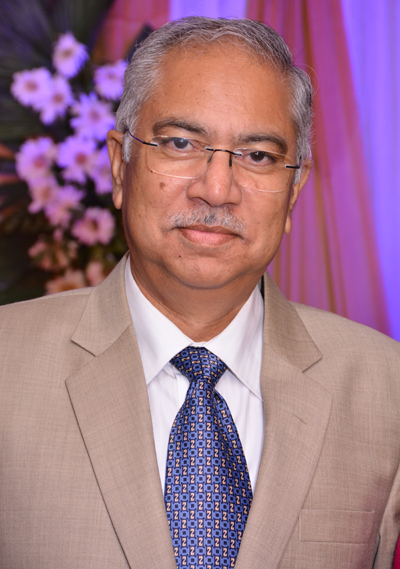Effect of coronavirus lockdown in UP’s Greater Noida
They were a group of three to four women. We passed by dismissing them as beggars. But we realised they were not seeking alms. Instead, they appeared to be lost. We looked in their eyes. They were dazed, looking around aimlessly.
What brought them to this residential area, we asked. In reply they said something. But it was incomprehensible. We repeated our question using sign language to ask which direction they had come from. What we could understand was they were from the family of rag-pickers residing at a nearby slum, one of hundreds in UP’s Greater Noida bordering Delhi.
They were out on the road for free food promised by the government. Prime Minister Narendra Modi, while declaring nation-wide lockdown amid coronavirus outbreak on 24 March, had said not to panic; the government would take care of everyone.
People took him on his face value, only to be disappointed, at least for the next two to three weeks. Those who suffered most were daily wage-earners. Among them rag-pickers are a notable lot. They are the unsung heroes who help clean up a significant proportion of the waste generated in modern cities.
In Greater Noida, an industrial city that generates tons of waste, they are found everywhere in the backyard of residential societies as well as offices and factories. Since their services are unrecognised and unregulated by any official authority, exact number of rag-pickers is hard to know. However, according to a rough estimate, they could be close to one lakh in this part of Delhi NCR. They come here mostly from Assam, West Bengal, Jharkhand and Bihar.
We followed the women to their jhuggis, a cluster of nearly 60 thatched huts in a slum area off a main road in Greater Noida’s Surjpur locality. The lockdown had halted their work at once. They had no idea where to earn their livelihood. The contractors for whom they work lend them money on interest in normal days. But these were extra-ordinary days. They were in no mood to oblige. Instead, they took their share in food – dry as well as cooked – that members of civil society supplied to the rag-pickers.
We experienced this in slums after slums. Out of 80 packs of dry ration that we supplied to a cluster of jhuggis, 15 were claimed by the contractor and his men presenting themselves as needy. We realised this only later. The rag-pickers, majority of them Muslims, face constant exploitation.
The contractors bring them from far-off places like Assam and West Bengal to work for them – collect waste from offices and factories and do scavenging on the street. They are given small pieces of land to erect their jhuggis. Ideally, it should be free but they are charged monthly rent of up to Rs 1,000.
Their children don’t go to school. Small kids as young as six are engaged in scavenging. They have to earn at least Rs. 50 per day to earn their meal. Amma kahti hain kam se kam pachas rupay ka samaan chun ker laao tab khana mile ga (Mother says get at least Rs 50 worth of items then only you will get meal), a child was quoted by a lady who runs a school for the children of rag-pickers. The school provides daily snacks to the children. According to her, the snack is prime motivation for the kids, because that is the only meal that they get before they earn their own.
Ever since the lockdown was announced these kids are on the road for a new job – to grab food coming from whichever source. This raises their vulnerability to sexual exploitation. We met a small group of children near Pari Chowk who were going to a Mall where, they told us, someone gives them milk and biscuits. This apprehension apart, widespread philanthropy is seen in Greater Noida these days. This is especially significant in the absence of government help that did come but it is too little and too late.
Noida and Greater Noida, which together form Gautam Buddha Nagar District, have 33 coronavirus hotspots as of 24 April. Police are strictly enforcing the lockdown. People, too, are following the norm of social distancing. But for those living in jhuggis, it’s business as usual. Ignorance apart, they don’t have the space to maintain distance. Besides, women and children of rag-pickers are found scavenging here and there. Police chase them away but policing is not possible all the time, at all the places.
After pursuing for several days we were able to contact a government official who was supervising food distribution in Greater Noida. The WhatsApp reply that we got from him was disappointing.
Following are the gist of the text in Hindi: “On receiving call for food, ask the person’s adhaar (identity) card number, BPL ration card number, its date and place of issuance, expiry date and the number of family members mentioned on it. This is important because many people are demanding 40 to 100 food packets. Food packets are meant only for extremely poor people who are stuck here because of lockdown.”
The rag-pickers are not stuck. They are residents of Greater Noida. But overwhelming majority of them don’t have adhaar cards or ration cards. To get one they have to go through all sorts of hassles. Plus, it requires an expense of up to Rs. 500 – a big amount for someone earning hardly Rs. 200 per day.

Shaheen Nazar is a Delhi-based journalist who began his career with Times of India, then moved to Dubai and later to Jeddah working with Khaleej Times, Saudi Gazette and Arab News. Currently, he is associated with ITMI (India Today Media Institute) where he teaches journalism.